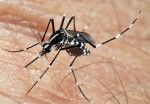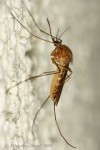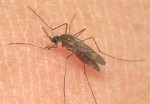Mosquito Prevention – Spring and Fall 2014
Mosquito Prevention For Spring thru Fall 2014

Here are a few tips on what you can do to help reduce the population of mosquitoes in your yard.
- Did you know that just a bottle cap left full of water is a potential birth place for 200 mosquitoes every 4 to 7 days?
- Remove excessive grass clippings, leaves and tree limbs from your yard.
- Tip over kids toys,flower pots or empty those old tires full of water just laying around outside every 4 days.
- Toss Tarps that are covering the wood pile, boats, cars, motor homes, equipment etc. Need to be emptied of standing water every 4 days. One way to achieve this is by making sure they are stretched taut, if not they are holding water.
- Empty house gutters so there is no standing water left in them.
- Call Mosquito Enemy at 978-363-2222 and schedule a Mosquito barrier spray by a licensed technician to achieve mosquito control in Andover, MA and surrounding cities and towns.
Mosquitoes Don’t Pop
Mosquitoes Don’t Pop
There has always been those myths that people simply can’t resist trying out for themselves: like dropping a slice of buttered toast to see if it lands butter side down or seeing if consuming Pop Rocks candies and soda will really make your stomach explode. Though they might not be as flashy as something found on an episode of MythBusters, there are many common assumptions about mosquitoes. One of those myths tells a rather “explosive” tale: that you can make a mosquito “explode” with either a flex of the arm or a pinch of the skin.
This myth is as follows: a mosquito lands on your flesh—usually somewhere like your bicep— and rather than smacking it away you flex or pinch your skin forcing the vampiric little fly to eat until it bursts. A rather gruesome, and ironic, end for the little bloodsuckers. This mosquito myth, however, is completely hinged on the idea that you can prevent the mosquito from removing its proboscis by flexing or pinching your skin. This is something that isn’t possible. Honest to goodness, you can’t create enough pressure to keep the mosquito stinger in your arm until the abdomen bursts. The only thing your efforts will be seeing if you try to make a mosquito pop through blood pressure is a bigger bump. There is, however, a bit of truth to this mosquito myth.
Within the scientific community there is a general consensus that there is indeed a way possible to cause a mosquito to burst. Tests conducted in in the mid to late 90s revealed that the only way to make a mosquito pop requires the severing of its ventral nerve cord. By precisely cutting this specific nerve cord a disconnect within the mosquito’s brain occurs, resulting in loss of awareness in satiety. In simpler terms, when the ventral nerve cord is severed, a mosquito has no sense of being full. It will continue to consume blood until it quadruples its body weight, whereupon it explodes. So unless you or a friend have the capabilities of performing neurosurgery, you won’t be seeing a mosquito “explode” anytime soon. For More…
Mosquito Repellent Spray for Yard, Outdoor Mosquito Control, Tick Spray for Yard, Mosquito Control.
North Shore Massachusetts Mosquito Control Needed For The Chikungunya Virus
North Shore Massachusetts Mosquito Control Needed For The Chikungunya Virus
![]() Lookout North Andover and North Shore Massachusetts a recently discovered chikungunya mosquito-borne virus that causes high fever and unbearable joint pain that can last for years is gaining a strong foot hold in the Carribean.
Lookout North Andover and North Shore Massachusetts a recently discovered chikungunya mosquito-borne virus that causes high fever and unbearable joint pain that can last for years is gaining a strong foot hold in the Carribean.
Over 4,000 confirmed cases in the St Martin,Guadeloupe and Martinique Area since December 2013.
The USA Center for Disease Control and Prevention (CDC) has been monitoring the uncontrollable spread of this new virus. They have been busy working with health officials to prepare for an awareness and to have testing available as needed.
If you live in Andover, North Andover or the North Shore area in Massachusetts start enjoying mosquito control with Mosquito Enemy in your yard.
Call Today! @ (978) 363-2222 “It’s More Fun Outside!”
North Shore Without Mosquitoes
North Shore Without Mosquitoes
A world without mosquitoes is one that appeals to many.
Every year mosquitoes are the root of millions of medical and financial burdens. Mosquitoes, as vector insects, continually spread diseases like Malaria, Yellow Fever, Dengue Fever, Japanese Encephalitis, Chikungunya, and West Nile virus. Mosquito-borne illnesses take the lives of nearly a million people each.
Then there is the pest factor that they pose. As the mosquito population reaches it’s seasonal peak this year, people across the Northern Hemisphere are many of these nuisances main course.
So, if mosquitoes were to be wiped out, what would happen? What would the world be like without mosquitoes? Would anybody miss them? Currently, there are over 3,000 species of mosquito and only a few hundred feed on or bother people. Mosquitoes have been on Earth for more than a hundred millions years and inhabit almost every continent and habitat currently known. They have co-evolved alongside of many of Earth’s animals as well and do serve their own unique functions in many ecosystems. The loss of the mosquito could possibly leave a species of predators without prey. Or it could leave plants without a pollinator.
Conversely, the world is not going to end if mosquitoes were to go extinct. Many scientists believe that life would go on if such a reality is ever achieved. The ecological scar that would be left by the missing mosquito would quickly heal and the niche that mosquitoes currently occupy would ultimately be filled by other organisms sooner or later. There are few things that mosquitoes do that other organisms can’t do just as well or better. Other than collateral damage for their removal, a world without mosquitoes would be safer for all of humanity.
Ultimately, a true solution to this problem has still yet to be found. We still don’t know what would exactly happen should mosquitoes go extinct. At the end of the day many people vouch for the importance of mosquitoes within ecosystems worldwide, while others just wish they would just buzz off.
North Shore, North Andover And Massachusetts Cities And Towns To Cancel All Mosquito Control Spraying In 2014
North Shore, North Andover And Massachusetts Cities And Towns To Cancel All Mosquito Control Spraying In 2014

This can’t be happening NO Mosquito Control sounds crazy doesn’t it? Why are you so concerned all of a sudden? Relax they will be spraying in 2014 when needed, I just wanted to get your attention. I have heard chatter from some of the cities and towns that their funds are low for scheduled treatments. Even when they do spray for mosquitoes with Triple E and West Nile Virus the chances of your very own yard having an infected mosquito is nearly as high and likely before they sprayed. To be fair they do kill off a lot of infected mosquitoes, but they target wetland areas not your back yard. For this very reason you will want to hire the professionals at Mosquito Enemy that will treat your yard for mosquito and tick control it doesn’t matter if you live in North Andover, Andover or any where in the North Shore we have you covered. Relax as your no longer in need of your city or town to do the spraying for you. You can take control today and start enjoying a mosquito free yard. Mosquito Enemy will apply a safe barrier spray only where the mosquitoes like to hibernate during the day and treat all egg and larvae areas. This will not only kill the adult mosquitoes but the new born as well that are on the way. Here at Mosquito Enemy we look forward to welcoming you on board as one of our Customers.
Read More

This can’t be happening NO Mosquito Control sounds crazy doesn’t it? Why are you so concerned all of a sudden? Relax they will be spraying in 2014 when needed, I just wanted to get your attention. I have heard chatter from some of the cities and towns that their funds are low for scheduled treatments. Even when they do spray for mosquitoes with Triple E and West Nile Virus the chances of your very own yard having an infected mosquito is nearly as high and likely before they sprayed. To be fair they do kill off a lot of infected mosquitoes, but they target wetland areas not your back yard. For this very reason you will want to hire the professionals at Mosquito Enemy that will treat your yard for mosquito and tick control it doesn’t matter if you live in North Andover, Andover or any where in the North Shore we have you covered. Relax as your no longer in need of your city or town to do the spraying for you. You can take control today and start enjoying a mosquito free yard. Mosquito Enemy will apply a safe barrier spray only where the mosquitoes like to hibernate during the day and treat all egg and larvae areas. This will not only kill the adult mosquitoes but the new born as well that are on the way. Here at Mosquito Enemy we look forward to welcoming you on board as one of our Customers.
Several ways you can control mosquitoes and ticks on your property
Several ways you can control mosquitoes and ticks on your property
Recently a lot of homeowners have been asking me what are there options for mosquito and tick control ? Today I would like to take the time to inform eveeryone what you and Mosquito Enemy can do to help control these vector insects. Mosquitoes need water for their birth, eliminate the water and we reduce there population by the thousands. Dump the water from all objects in your yard that will retain water every 4 days. Remove all loose brush and leaves from your property they love to hang out there during the heat of the day. Finally remove or keep tight all tarps don’t let the water puddle up on them If it does shake it off every 4 days. Lets not forget the gutters you must keep them free of debris and allow no standing water in them.
After you have finished what you can do to reduce mosquito and tick populations it’s now time to hire Mosquito Enemy to further control them. Mosquito Enemy travels from Andover thru-out all of the eastern Massachusetts cities and towns to mist our very own Barrier Spray programs. We will visit your yard every 21 days and mist our synthetic Barrier Spray onto all foliage and places they like to rest during the day, from late April to October to control both mosquitos and ticks. This product is made from the flower of the african chrysanthemum. We also have a Organic Barrier Spray for those that are looking for a more natural product. However this product is not as effective as our synthetic, we will need to spray every 14 days with our all natural products. We also treat all standing water for mosquito larvae to prevent new births. These are our most popular programs.
We also offer a custom designed Mist-a-way system for your yard. This system is designed to mist 2 to 4 times a day all areas where mosquitoes and ticks hide in your yard. It is an option that some homeowners prefer. Mosquito Enemy services your system from start-up thru winterization. Please watch the video for more information on this unique mosquito and tick control system.
Mosquito Population Reduction Using Gutter Protection
Mosquito Population Reduction Using Gutter Protection
We all like to blame the neighbor for our mosquito problems. There is a lot you can do in your yard to help prevent mosquito populations from growing. The most common infestation sources are bird baths, tires, buckets, wheelbarrows, kids toys and clogged gutters. These items withhold water and need to be turned over or drained every four days to prevent mosquito eggs from turning into adults. How do you drain a clogged gutter without the hassle, the answer is easier then you might think. With a Gutter Protection System that is made from recycled plastic bottles. It will allow the water to enter your gutter system without allowing leaves and debris into them. Clogged gutters are the single largest breeding area for mosquitoes on your property. Give Mosquito Enemy a call right now and get your free estimate on having your very own Rain Mover Fiber Filter Gutter Protection System installed Today! This is just one more great idea to help with mosquito control in Andover, MA and surrounding cities and towns.
With Mosquito Enemy “It’s More Fun Outside!”
How Much Blood Can A Mosquito Drink?
How Much Blood Can A Mosquito Drink?
When the tell-tale itch and swelling of a mosquito bite appears you can be sure that a female just made a meal out of you. Female mosquitoes, unlike their male counterparts, actually require the nutrition of blood for the development of their eggs—though they also dine on various sugars for sustenance as well. Without regular intakes of blood, a female mosquito’s ability to reproduce quickly diminishes due to the lack of protein. Male mosquitoes, on the other hand, make do just fine feeding on the nectar of plants. Even so, what can be considered a full course dining experience for a female mosquito is really not that much at all. For all the biting they do, mosquitoes are not the biggest eaters.
Female mosquito will suck about five millionths (or 0.000005) of a liter of blood in a single serving. It doesn’t take much at all to really fill a mosquito up, even if they can drink two to three times their body weight. Receptors in a female’s abdomen release chemicals that will tell a female when she has had enough and, when she’s done and on her way, she will look for a safe place to process the meal over the next few hours. Females do not rest for long though. The hunt for a new host begins once again after a female lays her eggs.
But, how many mosquitoes would it take to completely drain a human of all their blood? The common amount of blood that an adult human can carry varies anywhere from 4.7 to 5.5 liters of blood in their body. This, however, is all based on variables like weight and age. Given that females drink so little, the number of mosquitoes it would hypothetically take to suck someone dry can go upwards of 1,000,000. Though the number of mosquitoes it would take to turn a human into a raisin varies, that is still a lot of mosquitoes. For More…
How Many Types of Mosquitoes Are There?
How Many Types of Mosquitoes Are There?
With more than 3,000 species worldwide, there are a lot of different types of mosquitoes. Mosquitoes are known as both a nuisance and the world’s deadliest animal across the globe. There are, thankfully, nowhere near that many species found in the US.
Out of all of the mosquitoes currently recognized, only about 176 of those species are documented to be found within the continental United States. States like West Virginia have the fewest species of mosquitoes, with 26 species being found in the Appalachian region state. Meanwhile states like Texas and Florida have been recorded as have been hosts to a far greater number over recent years. Texas has the most with 85 while the sunshine state comes in at a close second having 80 identified species.Some of those mosquitoes, like Aedes Albopictus, are common while others are found less frequently.
Each different species of mosquito is unique from the next and the presence of a particular species is dependent on factors like season, temperature, and habitat. Some mosquitoes are only found in certain areas of the world while others are far more common.s
The following mosquitoes are the most commonly found across the United States:

- Asian Tiger Mosquito (Aedes albopictus): When it comes to invasive mosquito species, the Asian Tiger mosquito reigns as number one. This species of mosquito is a vector for Dengue Fever, and has the potential carrier to be carriers of Yellow Fever, encephalitis, and heart-worm in pets. Like its common name suggests, the Asian Tiger is native to the continent of Asia. After its first appearance in Houston, Texas, it is speculated that this species was most likely brought to the United States through shipments of scrap tires from northern Asia. The common name for Aedes albopictus originates in the species signature striped appearance. At approximately 3/16 of an inch in length, the Asian Tiger’s body is commonly black with one white stripe on its body and several white stripes across its legs. Watch out during the day because this species is known to be an aggressive daytime biter.

- Northern House Mosquito (Culex pipiens): The Northern House Mosquito is known to be the most common pest mosquito found in both urban and suburban areas. Though normally considered to prey mainly on birds, urban strains of Culex pipiens have been recorded to have a predilection for mammalian hosts and will feed readily on humans. This mosquito is acknowledged as being one of the species primarily responsible for the transmission of the West Nile Virus to humans, birds and other mammals. They are also the primary vector for both St. Louis encephalitis (SLE) and West Nile Virus in the eastern US. Interestingly, the presence of Culex pipiens is also an indicator of polluted bodies of water being in the immediate vicinity. This species appearance is plain brown while having white markings on its legs and body. The Northern House Mosquito is a crepuscular hunter, most active around dusk and dawn.
 Anopheles quadrimaculatus: As the chief vector for Malaria within the US, A. quadrimaculatus is rightly dubbed “the common malaria mosquito.” This species of Mosquito native to eastern North America and its range extends from southern Canada to Florida and west to areas of Minnesota and parts of Mexico. The common malaria mosquito is most active in summer months and in warm climates while also preferring humans and large mammals as their meals. It is currently recorded that members of this species are also known to be vectors for transmitting disease pathogens such as Cache Valley Virus, West Nile Virus and St. Louis encephalitis. These mosquitoes are also common hosts for dog heart-worm and are known to be vectors for other parasites. A. quadrimaculatusis another invasive species of mosquito that will often frequent houses and other man-made shelters. They are know to have a rather painless, barely noticeable, bite in comparison to other mosquito species though females will actually bite a host for blood repeatedly (males prefer to eat nectar exclusively). Mosquitoes from this species appear most frequently in rural swamps and wetlands. They are known to have a dark coloration due to being covered in dark brown to black hairs. Like the Northern House Mosquito, this species is most commonly active at the hours of dawn and dusk.
Anopheles quadrimaculatus: As the chief vector for Malaria within the US, A. quadrimaculatus is rightly dubbed “the common malaria mosquito.” This species of Mosquito native to eastern North America and its range extends from southern Canada to Florida and west to areas of Minnesota and parts of Mexico. The common malaria mosquito is most active in summer months and in warm climates while also preferring humans and large mammals as their meals. It is currently recorded that members of this species are also known to be vectors for transmitting disease pathogens such as Cache Valley Virus, West Nile Virus and St. Louis encephalitis. These mosquitoes are also common hosts for dog heart-worm and are known to be vectors for other parasites. A. quadrimaculatusis another invasive species of mosquito that will often frequent houses and other man-made shelters. They are know to have a rather painless, barely noticeable, bite in comparison to other mosquito species though females will actually bite a host for blood repeatedly (males prefer to eat nectar exclusively). Mosquitoes from this species appear most frequently in rural swamps and wetlands. They are known to have a dark coloration due to being covered in dark brown to black hairs. Like the Northern House Mosquito, this species is most commonly active at the hours of dawn and dusk.


